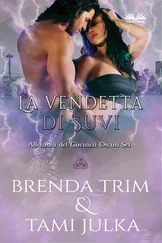‘There were men on horses, Ernesto… men with guns on horses. Smoke billowing out from the narrow wooden huts that gathered along the edge of the trees like children crowding for warmth.
‘It was in a place called Mayari in Cuba, out near Biran in the Oriente Province. Immigrant laborers lived there, one of them a man called Ruz, hailing originally from Galicia in Spain. He came to Cuba for the future it promised. Grew sugar, harvested it, sold it for meager profits, and watched while government men came down to rout out the instigators of a local protest and burned their houses to the ground.
‘February of 1926, and Ruz stood on the border of his land and prayed to a God he barely believed existed, and trusted that his faith would stop the government men from burning his property too. His prayers were heard, it seemed, for within an hour the government men rounded their horses and carried away towards the horizon, and left behind them families without livelihoods, families who knew nothing of the protests, and had they known would not have had the strength to raise their voices. But when it came to their own homes, well then they did find the strength, but it did no good. No good at all.
‘Ruz turned and walked back the way he’d come, and when he reached his own house his wife was waiting for him. Concern lined her face, and when he pulled her close, when he pressed his hand gently against her belly, when he told her that nothing, nothing in this or any other world , would come to harm her or their child, she believed that she could not have made a better choice in marrying this man.
‘For Ruz was a good man, a man of honor, of principle, and come August he would watch as his wife bore a son, and they would watch that son grow, and the son’s name was Fidel Castro Ruz, and he would work alongside his father in the sugar canes, and when he was six years old he would convince his parents to send him to school. And they would talk in hushed voices when Fidel Castro Ruz was sleeping, and they would agree that an education gave a child a future. So they sent him – this brave, bright, wide-eyed child – and Colegio Lasalle would take him in Santiago, and then Colegio Dolores, and through the years to come, as Hitler came, as Franco declared victory against the Republicans in Catalonia, as the Nazis marched on into Czechoslovakia, the child Ruz would study hard and well.’
My mother paused. I looked up at her, her face bright and passionate, but with a passion so different from that of my father. My mother was passionate about living, about making everything good for us, whereas my father was somehow frightening and violent and angry. It was as if he carried all the burdens of the world upon his shoulders and the weight of those burdens was killing him.
‘He was a fine student,’ my mother went on. ‘There didn’t seem to be anything he didn’t want to know. He worked hard through those years that saw Europe at war. In January of ’39 Franco entered Barcelona. He was allied to General Yague’s Moors, and from the north the Nationalist troops moved forward and cornered the Republicans. By March Franco had taken Madrid and ended the Spanish Civil War. Six months later Germany and Russia invaded Poland, and within forty-eight hours the war had begun. Hitler invaded Denmark and Norway and France, Trotsky was murdered in Mexico City, the Japanese attacked Pearl Harbor… and Fidel Castro Ruz, now a young man of sixteen entering the Jesuit School of Colegio Belen, would watch the world in turmoil. It was as if a hurricane rose up from the heart of Europe, and somehow it drew the rest of the world into its own breed of madness. Castro would survive all of this, and he would eventually give Cuba back to her people. He is an important man, Ernesto, a man you should learn about. You have it in you to be as powerful and wise as Fidel Castro Ruz.’
My mother stopped. She pulled me tight. ‘And what of you? You were alive even then, Ernesto Cabrera Perez. Born not in Cuba, though that was your father’s homeland, and even though you and Fidel Castro Ruz had the same date of birth, 13 August, you were all of five years old, oblivious to what was happening on the other side of the earth. You were here in America, in New Orleans, state of Louisiana…’
She turned away then and smiled, as if remembering me as a small child gave her some sense of comfort and solace. I listened to every word she said. She had been the child of a poor family, but she was intelligent and perceptive, reading all she could find, listening to her own parents as they told her about the world. Time and again she instructed me to pay attention to everything around me, to learn to read, to read everything as she had done, and to recognize that life was there to be understood. She wanted me to survive. She wanted me to escape the world within which she had found herself, and make something of my future.
My father was a boxer, a fighter born and bred, a man who had for some reason left Cuba behind him for the bright lights and brash shallow promise of the New World. My father, the ‘Havana Hurricane’. A powerful man, both in physique and temperament; his wife, my mother, a Southern American-Hispanic girl from the poorest of backgrounds, and between these two – the wild fury of manhood that was always my father, and she the brooding, dark-haired, emerald-eyed southerner that tempted all other men like Delilah – I was caught between a rock and a hard place. I was an only child, and perhaps suffered for it. If there was violence to be displayed it was displayed towards me and me alone. If there was affection and sympathy, then I was there also, and between these wild swings of emotional exuberance I began my life understanding that nothing was certain save uncertainty itself. Within a moment my father could turn into a rage of passion and punishment, sweeping his bruised knuckles wide and flooring both my mother and me. He would drink, drink like a man from the desert, and when he won a fight, when he carried home fistfuls of sweat-stained dollars, we knew that those same dollars would disappear through the neck of a bottle of cheap sourmash, or between the legs of some seventeen-year-old hooker.
Only later would I see those girls for what they were. These girls were like no other girls in the world. They possessed that wide-mouthed inbred look, chewing gum, slutting some illegitimate Creole twist when they walked, and when they talked their voices came up through their legs, their ample hips, their swollen breasts. They acted cheap and trashy, believing perhaps that this was the way they were supposed to act, and when they slanted by, tilting their eyes out beneath thick brunette bangs, you could sense in their expression how they felt about you. They ate you with their eyes, sucked your root with their arrogant and conceited lips, rolled you over backwards across wide rhythmic shoulders and buried you in the belief that to lie with them beneath some clammy, sweated sheet was the closest you would ever come to Heaven. Perhaps they were fathered in Hell, fathered by brothers and cousins, and abused before they realized there were differences between men and women.
This was a town called Evangeline, down south along Lake Borgne, and it was a small broken-up town that ran by its own rules, and those rules were laid down, branded in iron, and it would have taken more than any number of men to change them. The people were strong-willed, resentful of strangers; they clutched their secrets to their chests like unwanted gifts, things they wished to shed but could not. They carried a myriad burdens, and even as a small and frightened child I could read it in their cracked faces, their sun-bleached hair, their worn hands, their open hearts. For this, for me, was where life began and ended; this was where I found all that was significant about life – fear, anger, hatred, power and pain. Love and betrayal too, for love and betrayal walked hand-in-hand, cater-cousins, blood-brothers, echoes of the soul. My father, the Hurricane, did not sleep with these women because he did not love my mother; he loved her the only way he knew how. He loved her enough to beat her when she badmouthed him, to hold her afterwards as her eye bruised, to wrap cracked ice from the cooler in a towel and hold it against her swelling face, to calm her tears, to whisper his gentle platitudes, and then to coax her into taking his cock into her mouth, breathing life into him sufficient that he could turn her onto her side and bury himself inside her, to hold her shoulders hard against the floor while he emptied his rage out the best way he knew how. And she would scream his name, and shed tears as he hurt her, but she was blind enough to believe that now he would love her like the man she wanted, and not the man she had married.
Читать дальше
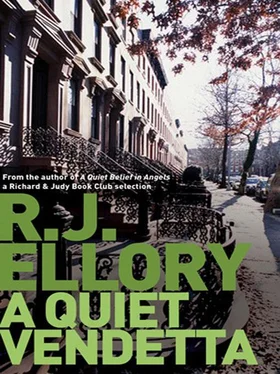
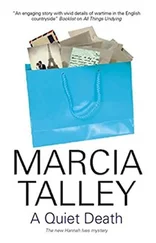
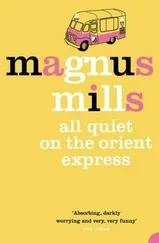


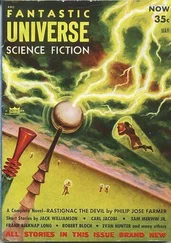

![Quiet Billie - Don't mistake the enemy [СИ]](/books/421973/quiet-billie-don-t-mistake-the-enemy-si-thumb.webp)

